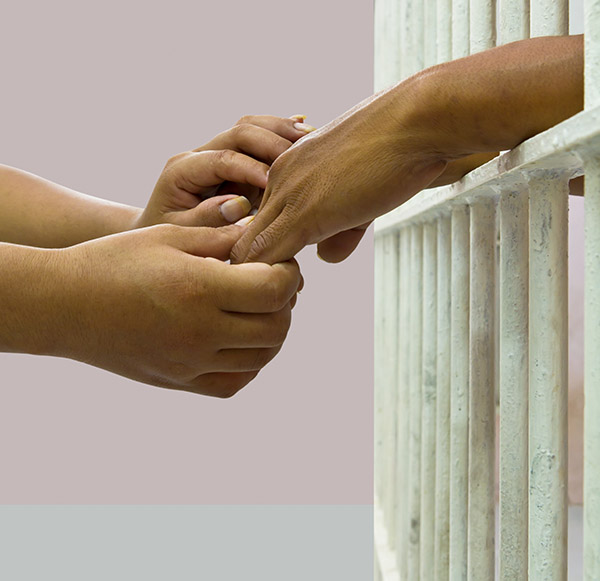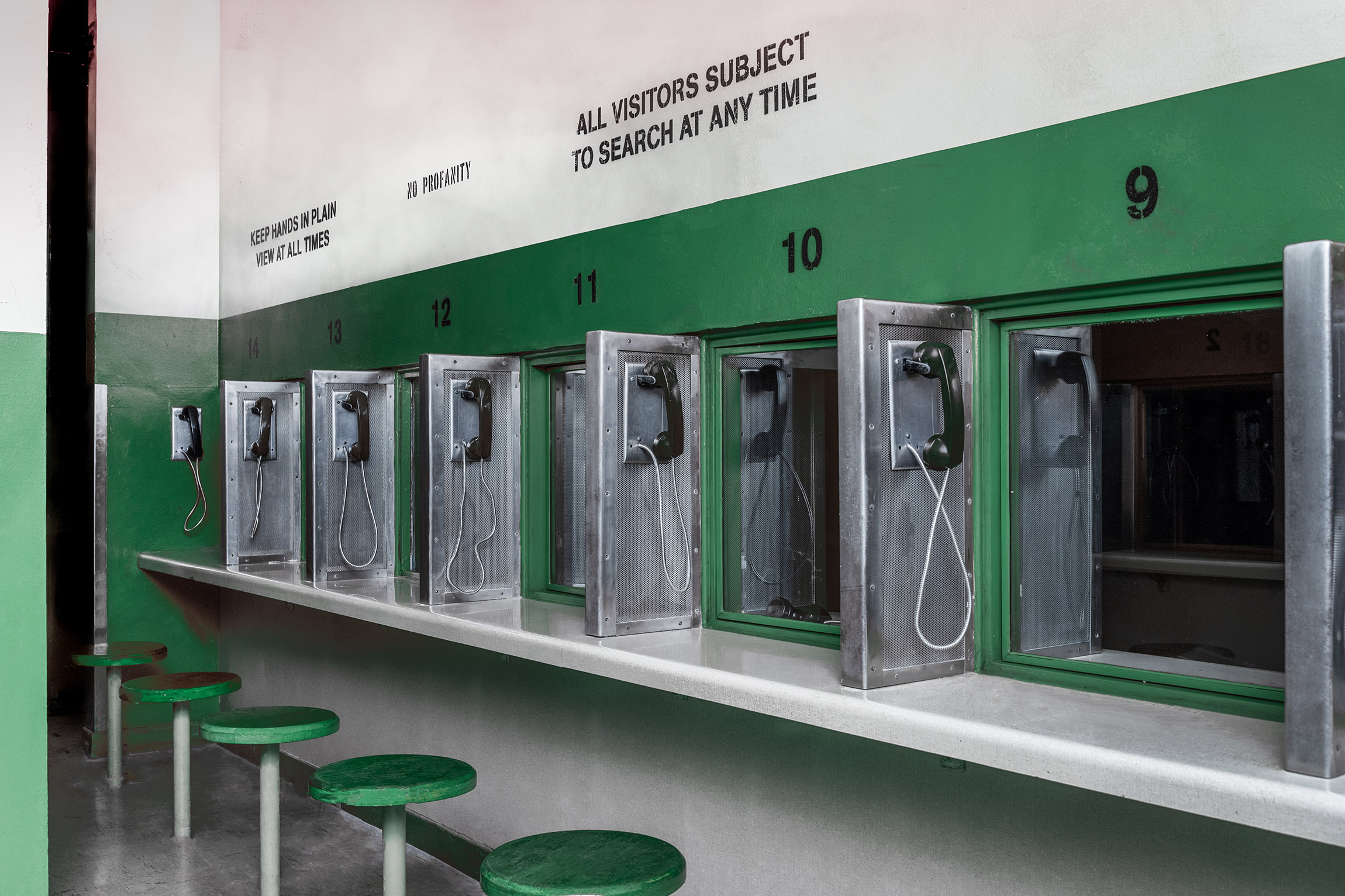After Ron went to prison
I became intensely aware that my children were more at risk of going to prison. It scared me. I never wanted to visit my child in prison. Not EVER. Every time I heard another statistic, the reality of the battle for my children’s future slapped me in the face. I vowed I would do everything within my power to keep my kids
out of prison.
Blake and Brandon were only 2 years old and 4 years old when their Daddy went to jail.
I often feared that they would be so scared that they unintentionally follow in his footsteps. When they would cry at the end of our visiting room goodbyes and beg to stay with Daddy, I had to regulate my emotions so I could respond correctly instead of reacting. I was very aware that I was setting a course for my sons. The path I was creating had to be one that led them away from prison.

I began reading every book I could on parenting.
Some of the principles resonated with me, and others I dismissed. I put together a clear plan to help my sons overcome the challenges of having their dad in prison. Every book I read, I would learn a new nugget that helped me put my vision into practice. Welfare kids, children of a prisoner—these labels were not going to define my children’s childhood nor predict their adulthood. Now that I knew the impact my actions had on my children, I determined to put into practice every principle that I had read about.

Getting started was actually the easiest part.
I was super, duper, triple-scooper motivated by the pain of having Ron in prison. I had all the motivation I needed to put my plan into action. Indeed, keeping motivated was a challenge for me. Just like any other life-changing event, the severity of the event starts to lessen over time. As families slide back into a “normal” routine, they leave their transformational ideas on the shelf. I determined to follow through. I knew that I could not guarantee my kids were going to become healthy, successful adults no matter what I did. But I decided that if my kid was going to fail—it was not going to be because I failed to act.
Keeping your kids out of prison takes effort.
It is a combination of what you do, and what they decide to do as they grow up. When you do your part, it is easier for them to do their part in staying out of trouble and living out their dreams. If you don’t change anything but what you WANT to happen, your child will have to climb mountains to overcome the roadblocks in front of them. Many kids simply get lost amongst the detours life throws at them when a parent goes to prison, unable to find their way back onto the path. It is your job to create the clearest road to success for them — then their job to take the journey.
Although your job may sound easy, it will not be easy. Here is what I did to help my kids choose the healthy path to adulthood and stay out of jail and, ultimately, prison:
- Faith: Teach your children your faith in God. Share it openly and often. Help them cultivate their own faith so they have a moral compass to follow across their lifetime. Take your kids to church, talk about the influence of faith in your life, and help them find the answers to their tough questions
- Fairness: Help you child understand the true definition of being fair. Life can seem unfair, so if your child doesn’t know how to respond to situations that seem unfair, they will live their lives feeling like a victim. Teach your children that they are the ones who are responsible for acting in a way that is fair, reasonable, and regulated. Nobody is going to make life easy for them, they must learn to respond to hardships by choosing the right behaviors, attitudes, and words. Always correct negative behaviors of your children, but never criticize the personality of your child.
- Friendship: You must help your child learn the value of friendship by showing them how to be a friend. Kids want friends—but they don’t know how to BE a friend. Show them how to accept others, stand their ground when their beliefs are challenged, and how to choose their friends wisely. When your children are young, choose to invest your time in introducing them to positive peers and environments that will prepare them to lead well.
- Forgiveness: Show them how to forgive others and themselves. My house rule: no issue is resolved until everybody apologizes and forgives each other. An apology alone is not enough. Children need to know that they must offer, and accept, forgiveness in order to run unshackled into their destiny. When your child offends you, disobeys you, or makes a mistake, there must be a consequence. Forgiveness must come quickly even when the consequence lasts.
- Fortitude: Insist on growing stronger in the middle of every hardship. If you don’t, your children may fall into the biggest trap of all; self-pity. Self-pity will breed a sense of entitlement and selfishness that will lead to illegal activities. Setting a tone of acceptance and learning from mistakes builds strength. Consistently reinforce the importance of learning from your mistakes.
Just because your children grow up in prison visiting rooms – or with virtual visits from Dad doesn’t mean that they are destined to go to prison. You can equip your kids to develop the habits and attitudes they need to become strong, thriving, and responsible adults.
I am rooting for you!
Cathy



